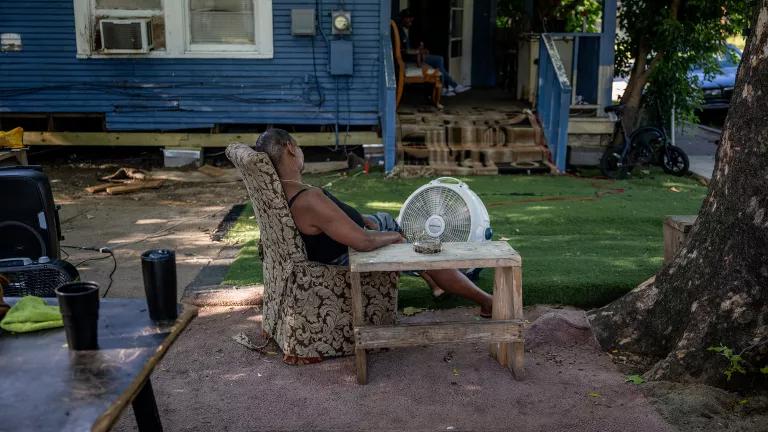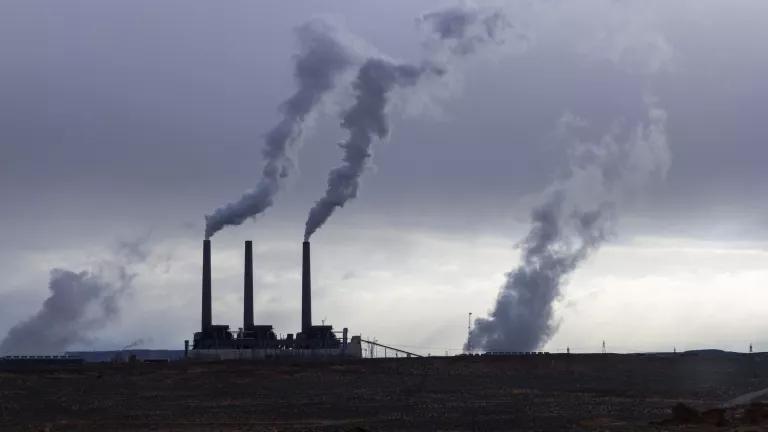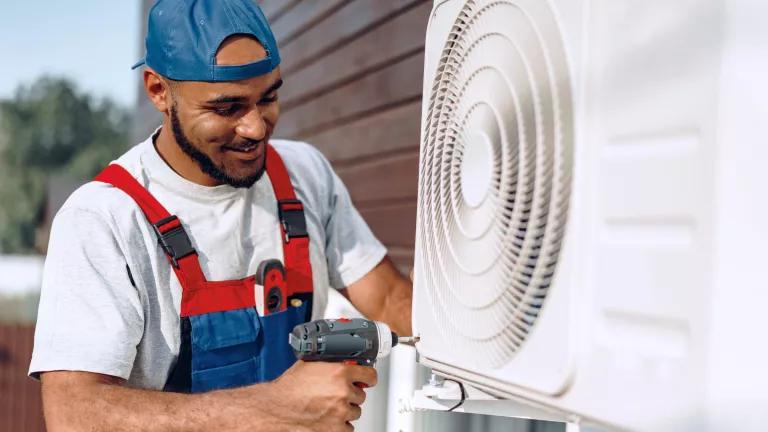Utility Consumer and Renter Protections Beyond COVID-19
With the precedent of the pandemic and moratoriums that have lasted several months, there is a unique opportunity to push even further for policies that will dynamically change the way we think about utilities and housing in the U.S.

This blog is the finale in a series of three by Schneider fellow Lizzie Avila on the topic of tenant and utility consumer protections before, during, and after the pandemic. You can find the first blog here and second blog here.
The COVID-19 pandemic sparked the creation of policies with an unprecedented amount of flexibility and dedication to preventing eviction and utility shutoffs. Some of these policies came in the form of complete, yet temporary, moratoriums. The reasoning behind eviction and utility shutoff moratoriums were similar:
“Residential evictions are contrary to the interest of preserving public health by ensuring that individuals remain in their homes during this public health emergency”
—Illinois Executive Order on evictions
“Having access to essential utility services is critical to maintaining Californians’ health and safety during the COVID-19 pandemic.”
—California PUC Docket on shutoffs
“A large portion of those who are evicted may move into close quarters in shared housing or, as discussed below, become homeless, thus becoming at higher risk of COVID-19”
Each iteration of this language reinforces that access to stable housing and energy is an indispensable component of one’s personal health and public health generally. While the necessity for housing and energy as an aspect of public health is exacerbated by the pandemic—with poor economic conditions and a disease that spreads rapidly through human interaction—it is not created by the pandemic. Access to housing is essential to stay healthy at all times, not just during the pandemic. Research from National Healthcare for the Homeless Council shows that 50% of personal bankruptcies in the U.S. are due to health debt, which can lead to homelessness, which can in turn lead to increased risk for things like infections and injuries. Access to energy inside of a household is essential to protecting against heat and cold related morbidities, providing ways to store and cook food, and ensuring access to necessary technology.
Having access to housing and energy is also an important equity issue, with nearly one in four black renters lived in a county in which the black eviction rate was more than double the white eviction rate, and research from the ACEEE showing energy burdens of up to 45% more in Black households compared to white households. This inequity is exacerbated in part by a lack of data on these disparities. There is no national database on utility shutoffs, and most state Public Utility Commissions (PUCs) have not historically required reporting of this data either. Eviction data is only tracked nationally by outside NGOs, such as EvictionLab. The lack of data on where and to whom shutoffs and evictions are happening enables stagnancy in the creation of policies that protect communities of color and low-income communities and acknowledge that this is an issue of equity and the results of systemic racism.
Looking Ahead
In order to move towards a more just future where equity is at the center, there are several steps that need to be taken:
- A first step towards that future is requiring the long-term collection of data for both evictions and utility shutoffs, which is called for in the National Consumer Law Center (NCLC) Utility Consumer’s Bill of Rights, and in EvictionLab’s Eviction Tracking System. To ensure thoroughness, data tracked should include location (census tract and/or zipcode) and any relevant demographic information as available.
- Further steps called for in the utility sector by the NCLC include:
- Asking states and localities to acknowledge in their statutes that access to utilities is a human need and essential to public health
- Prohibiting late fees and reconnection fees and;
- Offering debt-forgiveness programs
- Further steps called for in the housing sector by the National Low Income Housing Center and other housing advocates include:
- Expanding the National Housing Trust Fund and;
- Increasing resources for federal programs like the Low Income Housing Tax Credit (LIHTC)
Long-Term Change
But, with the precedent of the pandemic and moratoriums that have lasted several months, there is a unique opportunity to push even further for policies that will dynamically change the way we think about utilities and housing in the U.S. Policies moving forward will need to include an expansion of eligibility and ease of eligibility verification to ensure that everyone in need is able to be served by assistance programs. These policies will need to include streamlined support and fast distribution of cash assistance to end shutoffs and evictions due to nonpayment. They will need to be accompanied by outreach programs by landlords and utilities that inform each and every customer and tenant about what help is available to them. They will need to improve our housing stock with energy efficiency upgrades while simultaneously preserving affordability and preventing gentrification. They will need to be daring and bold with an emphasis on serving the community and centering equity. And they will need to go beyond the COVID-19 pandemic, because the issues of evictions, displacement, and utility shutoffs will continue until we have a comprehensive, long-term policies system that protects renters and utility consumers and makes housing and energy essential human rights.

Lizzie Avila is one of the summer 2021 Schneider Fellows at the NRDC working with Energy Efficiency for All in the Midwest. She is a rising junior at Stanford University studying Earth Systems and Urban Studies. During her time at the NRDC, Lizzie has worked on projects tracking COVID-19 related shutoff and eviction related policies, researching public utility commission reform, and working on a rate case with the Missouri EEFA coalition. After college, she hopes to pursue environmental law and work as a litigator at an environmental advocacy group. In her free time, Lizzie loves backpacking, reading fantasy novels, baking, and crossword puzzles.



